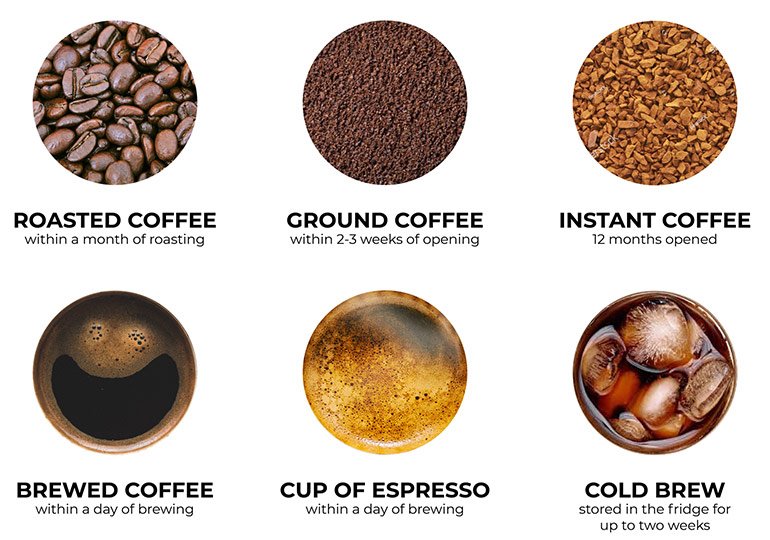Have you ever wondered how long your freshly brewed coffee retains its delightful taste and aroma? Whether you’re an ardent coffee connoisseur or just someone who enjoys a daily cup to start your mornings, the idea of sipping on stale, overcooked coffee is less than appealing. With this in mind, the duration for which brewed coffee stays fresh in both flavor and quality is key knowledge for both enjoyment and health.

Understanding Freshly Brewed Coffee
Freshly brewed coffee isn’t just about taste; it’s also about the integrity of its beneficial attributes. Coffee, when freshly made, promises a world of experiences through its varying flavors, complexity, and warmth. But how long do these elements stay intact after you’ve prepared your pot?
Factors Influencing Freshness
Several factors play a vital role in how long brewed coffee stays fresh. These include the brewing method, storage conditions, and the type of coffee beans used. Here’s a closer look at each:
-
Brewing Method: Each coffee brewing method, from drip and pour-over to French press and espresso machines, can impact the shelf life of the coffee. The brew’s exposure to heat and air influences its longevity.
-
Storage Conditions: Proper storage is crucial regardless of the brew method. Coffee’s biggest enemies are air, moisture, heat, and light. Improper storage accelerates the degradation of coffee quality.
-
Type of Beans: The type of coffee beans and their roast level also significantly impact how long your coffee stays fresh.
The Effect of Time on Brewed Coffee
Coffee begins to lose its optimal taste just minutes after brewing. The clock starts ticking right away, and the degradation process begins soon after. But just how fast or slow does this process unfold?
Immediate Impact (First 30 Minutes)
In the first 30 minutes after brewing, coffee maintains most of its delightful flavors. However, even during this initial window, subtle changes already start unfolding as oxidation begins to influence the brew.
Up to 1 Hour
Approximately one hour after brewing, you’ll notice a more pronounced change in taste. The coffee may start to lose its aromatic quality and complexity. It’s still drinkable, but not as enjoyable as it was fresh out of the coffee maker.
The 2 to 4 Hour Mark
By the time your coffee hits the 2 to 4-hour mark, stored at room temperature, it may become noticeably stale. The flavors start to degrade, resulting in a flatter, more bitter drink. High temperatures and air exposure exacerbate these changes.
Beyond 4 Hours
At this stage, most of the desirable flavors and aromas have dissipated. If left on a warmer plate or sitting in a sealed thermos, the coffee will likely taste pretty unpleasant. The bitter and astringent characteristics are much more prominent now.
24 Hours and Beyond
Coffee, left exposed or inadequately stored for 24 hours, should not only be avoided due to its unpleasant taste but also for health reasons. Over time, brewed coffee can grow bacteria, mold, and other harmful microorganisms.
Storing Brewed Coffee
To extend the freshness of your brewed coffee, proper storage is essential. Different storage methods can help keep your coffee drinkable for longer.
Thermos and Insulated Containers
Using a thermos or an insulated container can keep your coffee hot and relatively fresh for a few hours. These containers limit exposure to air and help maintain a consistent temperature.
Refrigeration
Refrigerating coffee can extend its drinkability for up to 24 hours but at the cost of flavor. Cold coffee doesn’t spoil as quickly, but it may become sour and lose much of its original taste.
Freezing Brewed Coffee
Freezing brewed coffee isn’t typically recommended as it can significantly alter the taste and texture. However, if you must, ice cubes made from coffee can be used for iced coffee drinks without diluting the flavor.
Tips for Maximizing Coffee Freshness
To get the utmost satisfaction from every cup, follow these tips to keep your coffee fresh:
-
Brew What You Need: Only brew the amount of coffee you expect to consume promptly.
-
Right Storage: Utilize thermos flasks or airtight containers to reduce exposure to air and maintain temperature.
-
Avoid Warmers: Don’t store coffee on a warming plate for prolonged periods as it causes rapid degradation.
-
Clean Equipment: Regularly clean your coffee-making equipment to avoid any old coffee residue that can taint the fresh batch.

Common Myths About Brewed Coffee Freshness
Misconceptions about coffee storage and freshness abound, leading many to adopt practices that might not be beneficial. Let’s dispel a few of these myths.
Myth 1: Reheating Coffee is Harmless
Reheating your coffee doesn’t restore its original flavor. In fact, reheating often makes the coffee taste more bitter and burnt, significantly affecting its quality.
Myth 2: Adding Milk Extends Shelf Life
Some assume that adding milk or creamer could preserve the coffee longer, but this isn’t the case. Milk can introduce additional bacteria, reducing the overall shelf life of your coffee.
Myth 3: Storing Coffee in the Fridge Keeps It Fresh
While refrigeration slows down the spoiling process, it also affects the flavor profile, potentially making your coffee taste stale and flat.
Knowing When to Let Go
Sometimes, it’s best to part with your coffee rather than drink an old, stale cup. Here are some signs that your coffee is past its prime:
-
Unpleasant Smell: A noticeable off-smell is a solid indicator that your coffee is no longer fresh.
-
Sour Taste: If it tastes sour rather than just bitter, it’s time to discard it.
-
Changes in Appearance: Discoloration or separation of coffee and oils suggests it’s time for a fresh pot.

Conclusion
Understanding how long brewed coffee remains fresh can significantly improve your coffee-drinking experience. From the initial impact time to ways to store and maintain freshness, knowing these details helps you enjoy each cup to its fullest. Remember, the key elements are immediate consumption, proper storage, and recognizing when it’s time to let go. So, the next time you brew a pot, take these tips to heart and savor that delightful freshness in every sip.
